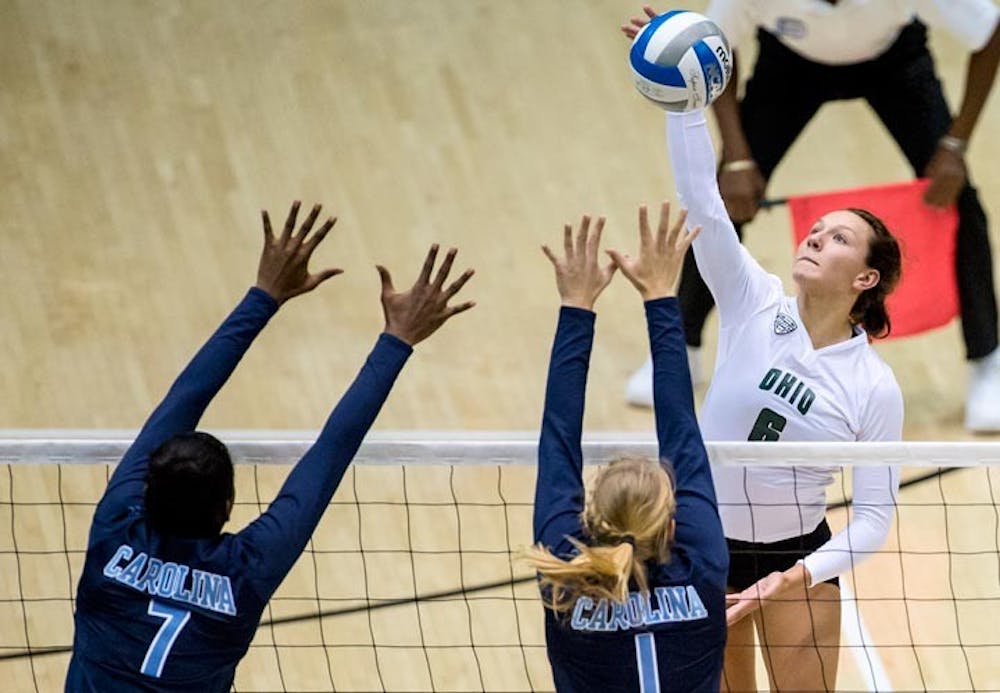Ohio is coming off two straight weekends in which they faced off against a team ranked in the American Volleyball Coaches Association Top 25.
Last year, the Bobcats were unsuccessful in six attempts against ranked teams. So far in 2013 they’ve fared better, besting then-No. 8 Oregon in straight sets on Aug. 31 before falling to then-No. 24 North Carolina in five sets this past weekend.
Ohio coach Ryan Theis said Ohio schedules tough early-season games to boost its Ratings Percentage Index, which is the tool that the NCAA uses to judge a team’s wins and losses and its strength of schedule. A better RPI in turn rates a team higher, and it can help a team make the NCAA Tournament when teetering on the tournament qualification bubble.
Theis said the most significant difficulty of scheduling a tough non-conference schedule is having a limited opportunity to sample different lineup options — something he could toy with more against weaker teams.
“Certainly there are some advantages with scheduling in the preseason that you can create,” he said. “We schedule so difficult for RPI purposes that we don’t really have much flexibility. That’s a disadvantage with scheduling tough in the preseason, but the benefits far outweigh the negatives.”
When scheduling more difficult matchups in the non-conference schedule, it makes every game all the more important because there are less easy games in the schedule. Sophomore setter Abby Gilleland says that the rigorous schedule helps Ohio in the long run.
“We try to take it as everyone is equal,” Gilleland said. “I feel like it sets us up well and sets our standards high for the season.”
Some may think that preparation for a high-profile team is much different than for a weaker opponent, but Theis said the Bobcats are consistent in the way they ready for competition.
“We’ll prepare the same, whether we’re playing an 11th or 12th-place team in the conference, or the No. 5 team in the nation,” Theis said. “We’re going to prepare and do our best to make sure our team knows what’s happening on the other side of the net. As the year goes along you log kind of what was successful against people and what you can use again, so that your team is hopefully, by the mid-way point of the year, prepared for anything.”
ab109410@ohiou.edu
@buschy6391






